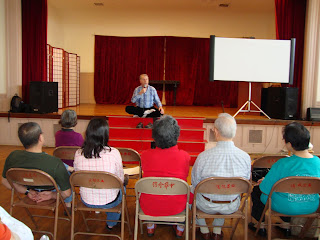
According to the International Food Information Council Foundation’s 2009 Food & Health Survey, 93% of Americans say they consider breakfast to be an important meal for a healthy lifestyle, but only 44% say they actually eat breakfast seven times a week.
People tend to think that skipping breakfast will help them lose weight when in fact the opposite is true. According to a study published in the American Journal of Epidemiology, a person is five times more likely to be obese if breakfast is skipped on a regular basis. Skipping a healthy breakfast in the morning will make a person snack more often during the day and consume larger portions.
Having breakfast within a few hours of waking up is also a good way to boost your metabolism. While you sleep your body begins to conserve extra calories because it believes you are in a state of fasting. Eating in the morning snaps your body out of this state and allows your metabolism to function normally.
Healthy options at breakfast can be as simple as a bowl of a high-fiber cereal (with skim milk), a bowl of instant oatmeal, or a cup of nonfat yogurt topped with fruit or nuts. If the meal contains bread or a bagel, choose the whole grain options and go with light cream cheese instead of butter. Donuts, high-fat muffins and most foods at fast food restaurants should be avoided.
Sources:
1. http://www.livestrong.com/article/376562-how-does-breakfast-boost-metabolism/
2. www.foodinsight.org/Resources/Detail.aspx?topic=2009_Food_Health_Survey_Consumer_Attitudes_toward_Food_Nutrition_and_Health
3. http://www.breakfastpanel.org/breakfast-and-weight-control/
4. my.clevelandclinic.org/heart/prevention/askdietician/ask11_01.aspx
5. http://www.diabetes.org/living-with-diabetes/treatment-and-care/ask-the-expert/ask-the-dietitian/what-foods-should-i-eat-at.html
For healthy breakfast suggestions check the “Breaking the Fast” chapter in Prevent and Reverse Heart Disease by Caldwell B. Esselstyn, Jr., M.D. (Penguin Group, 2007)
Here’s my favorite breakfast idea from the book:
"Banana French Toast (5 servings):
½ cup oat, almond, or nonfat soy milk
1 ripe banana, cut up
1 tablespoon nutritional yeast flakes (optional)
1 teaspoon vanilla extract
Pinch of ground nutmeg
5 slices whole-wheat or whole-grain bread
1. Whirl first five ingredients in a blender until smooth, then pour into a shallow bowl
2. Dip both sides of bread in mixture
3. Cook on a preheated nonstick griddle until browned on both sides or on a nonstick baking sheet in a 400-degree oven, turning once, until golden on both sides.
Note: These are good alone, with fruit, with maple syrup, or sprinkled with a little powdered sugar and cinnamon. For variety, leave out the banana and blend 2 tablespoons of flour with 1 full cup of the “milk.”"
-Caldwell B. Esselstyn, Jr., M.D.
Will Morelli







